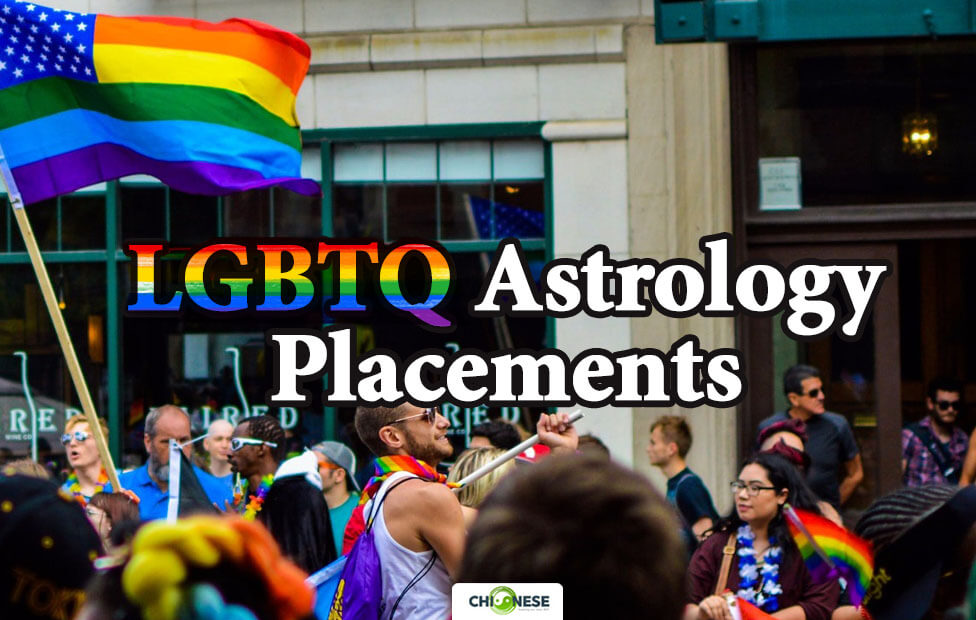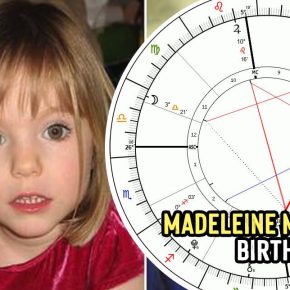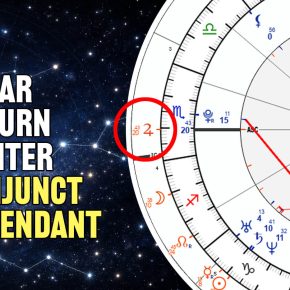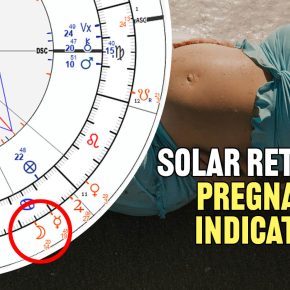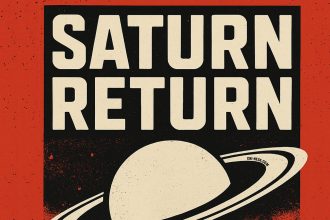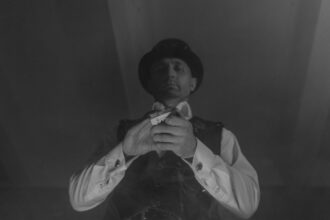Astrology will never stamp a chart with “gay,” “straight,” or “bi.” Human sexuality is far too layered and personal for that. What astrology can do is highlight patterns, the energies, tensions, and inner conflicts that shape how we love and express ourselves. And in charts of people who identify as queer, certain placements and aspects seem to show up again and again.
It’s not a formula or a guarantee. It’s less about “this aspect = gay” and more about placements that hint at fluidity, defiance of traditional norms, or desires that don’t fit the boxes we’re told to stay in. After years of studying charts, I’ve noticed certain patterns that show up more often in LGBTQ folks. Take them as observations and themes, not rigid declarations of sexuality.
Saturn in the 1st House
Saturn on the Ascendant can feel like living life with invisible weights on your shoulders. Identity feels restricted, expression feels guarded, and being your true self doesn’t always come easily. As kids, people with this placement often feel “different,” like they’re wearing a mask just to get by.
For many queer folks with this placement, the pattern looks familiar: early struggles, repression, hiding parts of themselves, and then a powerful release around the first Saturn return (ages 28–30). It’s not that Saturn causes queerness, but it often shows up in charts of people who go through a long, heavy journey before they finally embrace who they are. In fact, I’ve seen this placement over and over again in those who came out later in life, right after that first Saturn return cracked things wide open.
Saturn in the 10th House
Public image, reputation, “what will people think?”, that’s the core of 10th house Saturn energy. It’s not just about career; it’s about visibility, how the world perceives you, and the weight of expectations. Yes, Saturn is strong here (it’s in its natural house), but that doesn’t guarantee confidence or success. Instead, it often shows up as blocks, fear of exposure, or a constant feeling of being judged.
For men, many astrologers connect this placement to struggles with maternal authority or difficulty living up to rigid ideas of masculinity. For women, the story can unfold differently, but the theme remains: being seen feels risky.
For queer folks, Saturn in the 10th can delay coming out. There’s often a fear that authenticity could cost them career stability, family respect, or social standing. So they build walls, play roles, or hide until they feel strong enough to face the world.
In my experience, this placement shows up frequently in the charts of people who come out later in life, and yes, it’s especially common in transgender charts when Saturn sits close to the Midheaven.
Uranus on the Descendant or Descendant in Aquarius
Uranus is the planet of disruption, liberation, and nonconformity. Wherever it touches in a chart, it electrifies, bringing restlessness, rebellion, and the need to live authentically, no matter what others expect. Put Uranus on the Descendant (the angle that rules partnerships and “the other”), or place the Descendant itself in Aquarius, and relationships become the arena where these themes play out most vividly.
This placement often points to attraction toward people who are unconventional, progressive, or simply “different” from what your family or society might expect. Love and connection don’t follow a traditional script here. Instead of seeking a cookie-cutter partner, there’s a craving for someone who mirrors your need for freedom, individuality, and rebellion against norms.
For many queer folks, this shows up as rejecting heteronormative templates of relationships altogether. Uranus on the DSC says: “I don’t care what the rulebook says about love, I’ll write my own.” That might mean same-sex attraction, polyamory, fluid identity, or simply refusing to settle into a partnership that feels stifling or “standard.”
There’s also often a shock factor. Uranus tends to bring sudden, unexpected twists in partnerships: sudden attractions, sudden breakups, sudden realizations about what you really want. In queer charts, I’ve noticed this placement can coincide with “coming out stories” where relationships are catalysts for big personal awakenings. Sometimes it even plays out as falling in love with someone you “never thought you would” until it happens.
Mercury Conjunct Venus in Air Signs
When Mercury (the planet of communication, thought, and perception) meets Venus (the planet of love, attraction, and pleasure) in the air signs, Gemini, Libra, or Aquarius, the result is a mind-heart fusion that resists rigidity. Love becomes something to explore, question, and redefine, rather than something that must fit into traditional molds.
People with this aspect often approach relationships with curiosity first. They see attraction as fluid, an experiment in connection, and a space to play with ideas about identity and intimacy. Labels may feel too small for them, because their experience of love is more about energy, chemistry, and the meeting of minds than about strict categories.
It’s no surprise that this aspect shows up often in queer-identifying people. There’s a natural openness here, not just to different genders, but to different ways of loving and living. For some, this translates into bisexuality, pansexuality, or simply moving fluidly between different forms of connection. For others, it may mean orbiting queer communities, drawn to their creativity, vibrancy, and rejection of convention.
There’s also artistry in this placement. Mercury-Venus in air signs often creates poets, songwriters, or thinkers who put words to the undefinable. Many with this aspect write about queer themes, relationships, or identities… not necessarily because they want to “define” them, but because they’re fascinated by the endless ways love and attraction can express themselves.
Men With Heavy Libra Placements
Another pattern I’ve noticed, especially in men, is a strong emphasis on Libra energy. This can show up as a Libra stellium, Venus on the Ascendant in Libra, Mars in Libra, or multiple personal planets stacked in this sign.
Libra is ruled by Venus, the planet of beauty, harmony, and attraction, and when it dominates a chart, it often brings a fluid or nontraditional relationship to love and desire. For men, this energy can soften the typical “masculine” archetype and make them more comfortable exploring aesthetics, identity, or connections outside traditional gender norms.
It doesn’t always point directly to queerness, but it does highlight men who are magnetic, artistic, and more attuned to the balance between “masculine” and “feminine.” In practice, I’ve often seen heavy Libra placements show up in charts of men who identify as gay, bi, or who exist somewhere outside heteronormative frameworks.
Venus in the 12th House
This placement is often called the “secret love” signature. With Venus tucked into the 12th house of hidden things, love doesn’t always feel simple or public. These natives tend to carry crushes or romances that exist in the shadows. Their longings can feel forbidden, out of reach, or too vulnerable to expose.
For many LGBTQ folks, Venus in the 12th speaks directly to the experience of hiding affection or living a double life. Some keep their feelings under wraps for years, while others even enter traditional, heterosexual marriages while quietly longing for something different.
There’s a dreamy, poetic quality to this placement. These people love with great depth, often in ways they can’t fully express. When they do let love out into the open, it can feel both terrifying and liberating, as if they’re finally giving voice to a song they’ve been humming in secret all along.
Sappho with Personal Planets
The asteroid Sappho (80) is named after the ancient Greek poet from the island of Lesbos, whose verses celebrated love and desire between women. In astrology, Sappho carries that same symbolism, artistry, sensuality, and queer feminine energy.
When Sappho tightly conjuncts one of your personal planets (Sun, Moon, Mercury, Venus, or Mars, ideally within 1°), it can highlight themes of attraction to women, fascination with feminine beauty, or a natural connection to queer identity and culture.
For some women, this can show up as same-sex attraction or bisexuality. For others, it may play out as deep admiration for women, strong friendships, or a tendency to support queer causes and communities. Sappho placements can also point toward creative expression tied to sexuality, gender, or themes of liberation.
The exact flavor depends on the planet involved, on the Moon it may feel like emotional intimacy with women, on Venus a romantic or aesthetic draw, on Mars a sexual spark, on Mercury writing or speaking about queer topics. But in every case, Sappho brings a distinctly queer, poetic edge to personal expression.
Zodiac Signs Stereotypically Seen as “More Gay”
Astrology stereotypes (and yes, these are stereotypes, not science) often highlight a few signs that people jokingly or playfully label as “more gay.”
- Leo: Bold, dramatic, and expressive. They love to shine and don’t shy away from showing their flair.
- Gemini: Known for their duality and androgyny. Quick to adapt, curious, and fluid in identity.
- Aquarius: Progressive, rebellious, and experimental in love. They thrive on breaking norms and exploring what’s different.
Of course, queerness exists in every sign. You’ll meet gay, bi, and queer people across the entire zodiac wheel, even in Capricorn, the so-called “serious” one. Why? Because your Sun sign is only one piece of the chart. Identity, attraction, and expression are layered, shaped by Venus, Mars, the Moon, and beyond.
The Cosmic Takeaway
Astrology doesn’t “make you gay.” What it can do is describe the struggles, masks, and liberations that so many LGBTQ people experience. Certain placements show repression, secrecy, or a need to rebel against the script… themes that overlap heavily with queer stories.
If you’re searching your chart, don’t look for proof. Look for insight. Look for the places that explain why love feels complicated, why you hid your desires, or why you felt different growing up.
Your sexuality isn’t in the stars… it’s in your heart. And the heart always knows.
You May Also Like:
7 Gemini Worst Traits (Both Male And Female) Everyone Hates
4 Reasons Why Are Leos And Geminis So Alike (Written By A Gemini)
Andrew Tate’s Numerology & Astrology Profile – Everything You Need To Know



